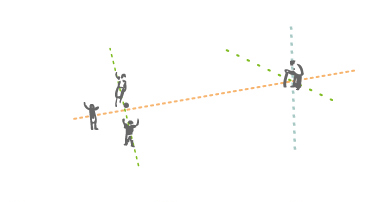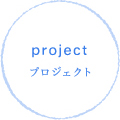



本研究は「シングル」とされる人間の存在とその生き方について、それと相反し強化しあうかのような存在である、当該社会における家族親族、またくわえて個々人に少なからず影響を及ぼす国家の存在との関係性を念頭に、縁(えにし)という言葉を手がかりに社会-文化人類学(以下、人類学と記す)の立場から追究するものである。
現代社会における個人の生き方は多様化してきている。出稼ぎ、単身赴任、留学、宗教的理由、また被災、少子高齢化といった要因で頻繁に人は移動し分散し、こうした社会的環境の変化によってライフスタイルや人と人との関係性も大きく変化している。いったん崩壊したかにみえた近代家族だが、それをモデルにした擬似的な「家族的」なものを求め、近年、人々がつながりだしている事象がみられる。
以上のような現代の事象をもとに、本研究はアジア・アフリカを中心に家族、社会の実態と、それらによって創出されたとも考えられる「シングル」の生きる戦術を明らかにする。さらにこうした作業により、固定されがちなシングルに対する現代的な社会理念、シングルの存在の対として位置づけられがちな理想像として生産される家族(像)について、人類学の立場から検討する。
This research is about the people who are categorized as ‘single’ in the society from the standpoint of socio-cultural anthropology. We will study by paying specific attention to the existence of the ‘single’ and the way of life, by using Enishi, a Japanese word, which mean karmic/relation/connection.
At that time, we focus on ‘single’ in society and concerned about family and kinship relations, and in addition, on the relationship between "single" and the state which put considerable impact on the individual person.

 |
「シングル」と家族:縁の人類学 |
|---|---|
 |
‘Single’and Family:The anthropological study of "Enishi(karmic/relation/connection) |
 |
2010年4月〜2013年3月(3年間) |
|---|---|
 |
April, 2010~March, 2013(3years) |
 |
椎野 若菜 |
|---|---|
 |
Wakana SHIINO |
 |
西井 凉子 |
|---|

どの社会にも理想の、心象的な、またステレオタイプとして形成された家族、親族像、また国家がつくりあげる家族像などがある。おもにアジア・アフリカ地域の各社会における典型的な家族像などからはみだした/はずされたとされることの多い「シングル」に注目し、その社会的位置や生活戦術を描こうとするのが、本研究の目的である。そういった既存の像が個々人の生き方の選択に大きな影響を与えていることは明らかであり、またそれらと人々の生活実践における家族・親族のあり方との間にはギャップがある場合も多くみられる。したがって、こうした像はどのように語られ、形成されてきたのか、社会的経済的、政治的、歴史的背景をもとに分析する必要が生じる。以上に注目し研究することにより、当該社会の人々の生活実践における家族・親族のあり方とシングルの関係性の実態、また既存の像とは合致しないシングルのあり方を考察することができる。その際、「縁」という視点から世界各地の人と人のつながり、家族親族のありようを捉え直し、人類学における家族研究の現代的意義を確認すると共に、その新たな地平を見出すことを目的として掲げたい。
Lives of individuals in modern society has been diverse. People frequently migrate locally and internationally for education, medication due to illness, religious reasons, or due to environmental changes and disasters that occur frequently. In developed countries there is a tendency of ‘the ageing society with a declining birthrate’ so that many old people stay alone, unlike before. These changes in the social environment has greatly changed the relationship between people and lifestyles and the collapse of what once seemed to be a ‘modern family’. But recently, people seem to start to connect to each other while looking for a kind of a ‘family' or 'kinship' connection which is somehow based on a pseudo-model ‘modern family’.
Based on the above events, our study aims to try to reveal the social realities of family, kinship and society in Asia and Africa, and the tactics of life for 'single' which can be considered as family and or community-created.
In addition to this work, we will analyze social and modern philosophy for the single, and the ideal image (picture) of a family it produces to tend to fix the existence of ‘single’ as a pair of family from the perspective of anthropology.
Based on the above events, our study aims to try to reveal the social realities of family, kinship and society in Asia and Africa, and the tactics of life for 'single' which can be considered as family and or community-created.
In addition to this work, we will analyze social and modern philosophy for the single, and the ideal image (picture) of a family it produces to tend to fix the existence of ‘single’ as a pair of family from the perspective of anthropology.


現在の日本における人類学は、研究トピックが細分化し地域研究への偏重度が強くなり、逆に他地域との比較という視点を軽んじる傾向にある。また、応用人類学的な、開発政策に関わる実践的な研究が多くなり、本来はそうした研究にとって前提であるはずの家族や親族に関する研究が著しく減少、低迷している。しかし人間の学である人類学において家族・親族のありように目をむける研究の存在意義は、社会人類学が学問として始まったとき以来変わらず重要であると私は考える。
本研究は、従来の親族研究の問題点でもあった人類学における西洋主導を乗り越え、しかしこれまでの蓄積、たとえばカーステンのrelatednessなども念頭におきながら、日本語として用いられる「シングル」について、また「家族」という基礎的な用語について、そして血縁、地縁、社縁などさまざまな形で用いられてきた「縁」という語を手がかりに、家族親族について、人類学的な研究を新たな次元の展開に導く意義を持つ。人類学のひとつの大きな拠点である本研究所において、複数の人類学者がこのトピックについて共同研究を行うことは、人類学界における家族親族の研究分野のプレゼンスの向上をはかるという点で、かつ本研究所のプレゼンスを高める点においても、大きな意味がある。 The current Anthropology in Japan is such that there is a strong degree of bias to areas of specific research interests, where the perspective tends to downplay the reverse comparison with other regions. There is also another tendency where many anthropologists research on pragmatic studies concerned with Development Policies and International Economics for example, while omitting the basic study on the family and kinship. But even now for those studies, it is important to compare with another research sites because the comparisons bring new ideas and different perspectives. It is also important to focus on the status of family and kinship as before, because studies about family and kinship are the basic studies for understanding the society. But it seems that these methods and topics are attracting little or no attention even to Anthropologists. But we think this topic is so important even now just as it was since social anthropology started.
We try to get over the leadership of Western academism while considering academic stock on kinship studies, like the concept of ‘relatedness’ by Janet Carsten. In this study, we will also examine the technical word ‘family’ in social sciences.
It is an important to conduct joint research on this topic with several other anthropologists in this Institute, it being one of the main academic centers of Anthropology. And we can expect that the presence of the field of this topic will raise interests on ‘single’, family and kinship studies, and at the same time elevate our Institute as the center of anthropological studies in Japan.
本研究は、従来の親族研究の問題点でもあった人類学における西洋主導を乗り越え、しかしこれまでの蓄積、たとえばカーステンのrelatednessなども念頭におきながら、日本語として用いられる「シングル」について、また「家族」という基礎的な用語について、そして血縁、地縁、社縁などさまざまな形で用いられてきた「縁」という語を手がかりに、家族親族について、人類学的な研究を新たな次元の展開に導く意義を持つ。人類学のひとつの大きな拠点である本研究所において、複数の人類学者がこのトピックについて共同研究を行うことは、人類学界における家族親族の研究分野のプレゼンスの向上をはかるという点で、かつ本研究所のプレゼンスを高める点においても、大きな意味がある。 The current Anthropology in Japan is such that there is a strong degree of bias to areas of specific research interests, where the perspective tends to downplay the reverse comparison with other regions. There is also another tendency where many anthropologists research on pragmatic studies concerned with Development Policies and International Economics for example, while omitting the basic study on the family and kinship. But even now for those studies, it is important to compare with another research sites because the comparisons bring new ideas and different perspectives. It is also important to focus on the status of family and kinship as before, because studies about family and kinship are the basic studies for understanding the society. But it seems that these methods and topics are attracting little or no attention even to Anthropologists. But we think this topic is so important even now just as it was since social anthropology started.
We try to get over the leadership of Western academism while considering academic stock on kinship studies, like the concept of ‘relatedness’ by Janet Carsten. In this study, we will also examine the technical word ‘family’ in social sciences.
It is an important to conduct joint research on this topic with several other anthropologists in this Institute, it being one of the main academic centers of Anthropology. And we can expect that the presence of the field of this topic will raise interests on ‘single’, family and kinship studies, and at the same time elevate our Institute as the center of anthropological studies in Japan.


本研究では、アジア、アフリカを中心に世界各地のさまざまな社会で実地調査研究を行ってきた人類学者・社会学者が、各人の調査国、分野からの知見をあわせて共同研究することによって、広い視野からの議論と、フィールド経験を活かした具体的な実践的研究の展開と成果が大いに期待される。また本研究を共同研究とすることにより、共同研究員の調査対象とする世界の地域文化の比較が可能となり、従来の分析概念を再検討する視角を切り開くことができる、という研究成果が期待できる。科学技術の発達により時空間が短縮され、地球上でトランスナショナルな状況が加速する一方で、人々は多岐にわたるつながりを求めるようになっている。こうした現代の状況を踏まえた文脈で、社会人類学において人間社会を思考する際の基礎となってきた家族親族についていまいちど問うことを試みつつ、「シングル」について考察する研究のスタンスは、変化の著しい現代社会が生み出す様々な状況を読み説く視点を研究者側から日本一般社会に提出することになろう。
くわえて、目まぐるしく変化する現代の人間の動態にあった新たな研究視点と方法の提示を、日本だけでなく、英語圏の人類学アカデミズムへもアピールすることが期待される。 In this study, we can expect a broad discussion and practical results by anthropologists and sociologists who conducted fieldwork mainly in Asia and Africa. By doing joint research, we can find and collect new ideas from the local knowledge and anthropological experiences around the world.
Those based on the contemporary context, we would like to try to ask once more the orthodox theme about family and kinship in social anthropology. At the same time, we will investigate the ‘single’ which is the new concept and created by a modern society. We are sure that we can submit a key how to read the rapid social changes in modern society thorough this perspective.
In addition, it can be expected that the presentation of this new research perspectives and methods can appeal not only to Japanese academism but also English-speaking academic anthropology.
くわえて、目まぐるしく変化する現代の人間の動態にあった新たな研究視点と方法の提示を、日本だけでなく、英語圏の人類学アカデミズムへもアピールすることが期待される。 In this study, we can expect a broad discussion and practical results by anthropologists and sociologists who conducted fieldwork mainly in Asia and Africa. By doing joint research, we can find and collect new ideas from the local knowledge and anthropological experiences around the world.
Those based on the contemporary context, we would like to try to ask once more the orthodox theme about family and kinship in social anthropology. At the same time, we will investigate the ‘single’ which is the new concept and created by a modern society. We are sure that we can submit a key how to read the rapid social changes in modern society thorough this perspective.
In addition, it can be expected that the presentation of this new research perspectives and methods can appeal not only to Japanese academism but also English-speaking academic anthropology.

Copyright (c) Tokyo University of Foreign Studies. All Rights Reserved.
AA研共同研究プロジェクト






